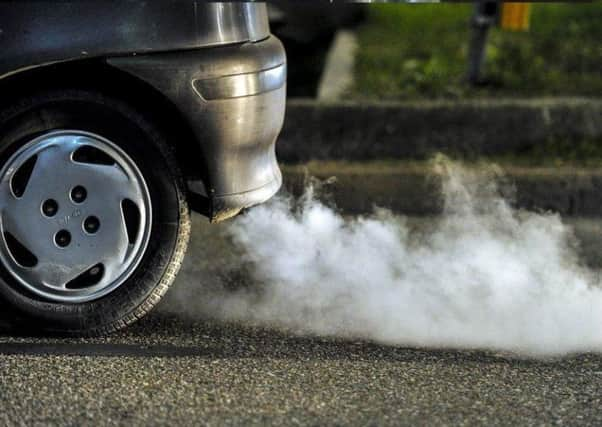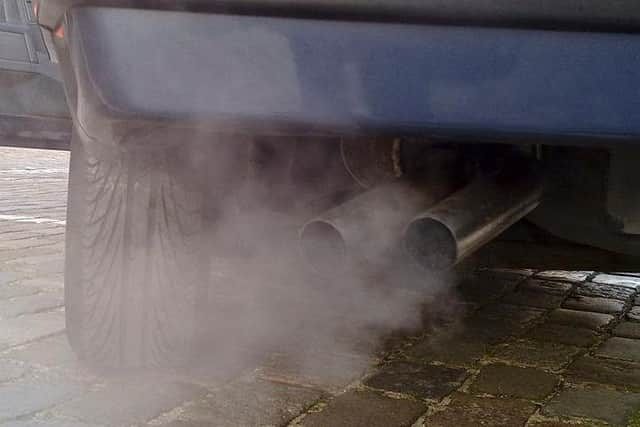Diesel fume deaths '˜unreported', say Yorkshire researchers


The excess emissions of harmful nitrogen oxide (NOx) exhaust gases can be linked to 38,000 premature deaths worldwide, according to the new research, which involved researchers from York.
This is in addition to the World Health Organisation’s estimate of 3.7 million deaths caused by outdoor air pollution.
Advertisement
Hide AdAdvertisement
Hide AdThe scientists argue that there is too little awareness of the impact of “real world” vehicle air pollution. Heavy duty vehicles such as lorries and buses were identified as the major culprits.


NOx can damage lung tissue but also reacts with chemicals in the atmosphere to produce ground-level ozone and ultra-fine particles, both of which are harmful.
Ozone irritates the airways and aggravates lung diseases such as asthma and bronchitis, while inhaling fine particles is strongly linked to heart and artery disease.
The study, published in the journal Nature, found that diesel vehicles around the world produced 4.5 million tons more NOx than they should do under international emission standards.
Advertisement
Hide AdAdvertisement
Hide AdThe research was led by the International Council on Clean Transportation and Environmental Health Analytics in collaboration with scientists at the University of York’s Stockholm Environment Institute.


Chris Malley, from the University of York, said: “This study shows that excess diesel nitrogen oxide emissions affect crop yields and a variety of human health issues.
“We estimate that implementing Next Generation standards could reduce crop production loss by one to two per cent for Chinese wheat, Chinese maize, and Brazilian soy, and result in an additional four million tonnes of crop production globally.”
According to the Royal College of Physicians, air pollution across the UK is linked to around 40,000 premature deaths every year.
Advertisement
Hide AdAdvertisement
Hide AdThe UK has struggled to keep within EU limits on some pollutants, particularly NOx, which is produced by diesel engines and is linked to a range of respiratory diseases, including asthma.
One of the proposals revealed earlier this month as part of the Government’s draft clean air plan is a “targeted” car scrappage scheme.
In its technical documents supporting the plan, modellers estimate that such a scheme could take 15,000 diesel and older petrol cars off the road.
Separately, Leeds is one of five cities ordered by the Government to introduce a Clean Air Zone by 2020.
Advertisement
Hide AdAdvertisement
Hide AdThis weekend, a report by a Standford University economist predicted that no more petrol or diesel cars, buses, or trucks will be sold anywhere in the world within eight years, as the entire market for land transport switches to electrification.
Study co-author Dr Susan Anenberg, from the consultancy firm Environmental Health Analytics LLC, said: “The consequences of excess diesel NOx emissions for public health are striking.”
The team, which included scientists from the University of Colorado at Boulder (UC Boulder) and the US non-profit organisation the International Council on Clean Transportation, analysed data from 30 studies of vehicle emissions under real-world driving conditions around the world.
In 2015, diesel vehicles generated 13.1 million tons of NOx in the 11 major vehicle markets studied.